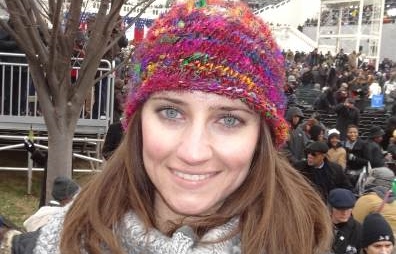
Q & A With Dr. Eddie Allison
How did you decide to become a professor?
I am an accidental academic. Neither of my parents went to college – and I didn’t know any professors before I started university. I ignored career advice at school that I was best suited to the law or diplomatic service and I did a marine biology degree because I liked the sea and had a notion that adventures could be had either on it or in it.

Q & A with Kristina Beverlin
What led you to pursue a Master of Marine Affairs?
I would like to help bring attention and understanding about marine issues to the general public.
Why did you choose UW’s SMEA for graduate school?
I had been told that it is one of the most distinguished marine programs in the world.
What are you writing your thesis about and why?

Q & A with Max Mossler
What led you to pursue a Master of Marine Affairs?
I love social-ecological relationships. It is fascinating to study how people rely on and interact with their natural environments.
Why did you choose UW’s SMEA for graduate school?
The interdisciplinary approach to environmental problems.
What are you writing your thesis about and why? If you haven’t decided, what do you think you might write about and why?

Q & A with Liliana Bastian
What led you to pursue a Master of Marine Affairs?
Immediately after getting my B.S., I didn’t have the right skills and network for the marine conservation and development jobs I wanted. I knew the M.M.A. would give me important social science and professional experience that I didn’t pursue in undergrad.
Why did you choose UW’s SMEA for graduate school?
UW’s SMEA has world-class faculty that, to me, other programs don’t compare to.

Q & A with Dr. David Fluharty
How did you decide to become a professor?
In High School one of my civic affairs teachers talked about a particular natural resource management controversy that intrigued me. She let me borrow her Master’s thesis on the topic. I realized then that I wanted to do research to understand how to improve natural resource management. That led to the design of my idiosyncratic undergraduate curriculum that sought exposure to natural and policy sciences to explore how the two could mutually inform each other.

Q & A with Dr. Ryan Kelly
How did you decide to become a professor?
In my case, it wasn’t a very direct path, and I wasn’t quite sure where I would end up. But being a professor brings together a lot of things that I enjoy; it’s a nice balance of research, teaching, writing, and so on. It can be collaborative or solitary, and can take you all over the world.

Q & A with Jillian Lyles
What led you to pursue a Master of Marine Affairs?
As an undergrad, I majored in ocean sciences and double minored in marine biology and natural resource management. Through my studies and subsequent time out of school, I began to realize how important it is that we effectively manage human activities surrounding marine affairs issues in an effort to ensure that the environment and ocean resources are conserved.

Q & A with Neal McMillin
What led you to pursue a Master of Marine Affairs?
In order to influence policy, I realized that I needed to become an expert in a specific sphere of the environment. I’ve long wanted to live near the ocean, so marine affairs sounded like the dream.
Why did you choose UW’s SMEA for graduate school?
In a word, Seattle. Besides the locale, I knew I could pursue policy investigations on cutting-edge renewable energy projects thanks to UW’s standing as a world-class environmental research center and SMEA’s human dimensions focus.